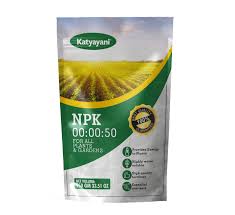
Sep . 21, 2024 15:39 Back to list
potassium phosphate fertilizer
Potassium Phosphate Fertilizer An Essential Component for Healthy Plant Growth
Potassium phosphate fertilizer is a crucial nutrient source that plays a significant role in the healthy growth and development of plants. Composed of potassium (K) and phosphate (P), this fertilizer offers a range of benefits that enhance soil fertility and plant performance. Understanding its composition, application methods, and advantages can help gardeners, farmers, and horticulturists make informed decisions for optimizing plant health.
Composition and Types
Potassium phosphate comes in various formulations, the most common being mono-potassium phosphate (MKP) and di-potassium phosphate (DKP). MKP (KH2PO4) contains both potassium and phosphorus in a highly soluble form, making it readily available for plants. On the other hand, DKP (K2HPO4) offers a different ratio of potassium and phosphorus, allowing for varied applications depending on specific crop needs.
Benefits of Potassium Phosphate
1. Promotes Healthy Plant Growth Potassium is essential for the overall growth of plants. It helps regulate several physiological processes, including water uptake, enzyme activation, and photosynthesis. Phosphorus, another critical nutrient, supports root development, flowering, and fruiting. Together, these elements promote vigorous plant growth, resilience to stress, and improved yields.
2. Enhanced Nutrient Uptake Potassium phosphate aids in the enhancement of nutrient uptake by plants. It helps to create a balanced nutrient environment in the soil, allowing plants to absorb other essential nutrients more efficiently. This synergistic effect ensures that plants receive a well-rounded supply of nutrition for optimal growth.
potassium phosphate fertilizer

3. Improved Crop Quality The application of potassium phosphate has been linked to the improvement of crop quality. Plants rich in potassium tend to have better color, taste, and shelf life, making them more marketable. Additionally, this fertilizer can enhance the nutritional value of fruits and vegetables, contributing to healthier food options.
4. Soil Health Regular application of potassium phosphate fertilizer contributes to soil health by promoting beneficial microbial activity. A robust microbial ecosystem aids in organic matter breakdown, nutrient cycling, and improved soil structure. Healthy soil leads to enhanced water retention and aeration, creating an ideal environment for root growth.
Application Methods
The application of potassium phosphate can be tailored to meet the specific needs of different plants and soil conditions. It can be applied through broadcasting, banding, or fertigation. Broadcasting involves spreading the fertilizer evenly over the soil surface, while banding places it in concentrated rows close to the plants. Fertigation, on the other hand, involves dissolving the fertilizer in irrigation water, providing a steady and efficient nutrient supply.
Conclusion
In summary, potassium phosphate fertilizer is an indispensable resource for anyone involved in agriculture or gardening. With its powerful combination of potassium and phosphorus, it supports healthy plant growth, enhances nutrient uptake, improves crop quality, and contributes to soil health. Understanding how to effectively use potassium phosphate can lead to optimal plant performance, increased yields, and a sustainable approach to farming. Whether for home gardens or large-scale agricultural operations, incorporating potassium phosphate fertilizer can make a significant difference in plant health and productivity.
-
Organic 10-10-10 Fertilizer | Balanced Plant Nutrients
NewsJul.31,2025
-
Premium Amino Acid Fertilizer | Rapid Plant Growth Booster
NewsJul.31,2025
-
10 10 10 Fertilizer Organic—Balanced NPK for All Plants
NewsJul.30,2025
-
Premium 10 10 10 Fertilizer Organic for Balanced Plant Growth
NewsJul.29,2025
-
Premium 10 10 10 Fertilizer Organic for Balanced Plant Growth
NewsJul.29,2025
-
Premium 10 10 10 Fertilizer Organic for Balanced Plant Growth
NewsJul.29,2025
